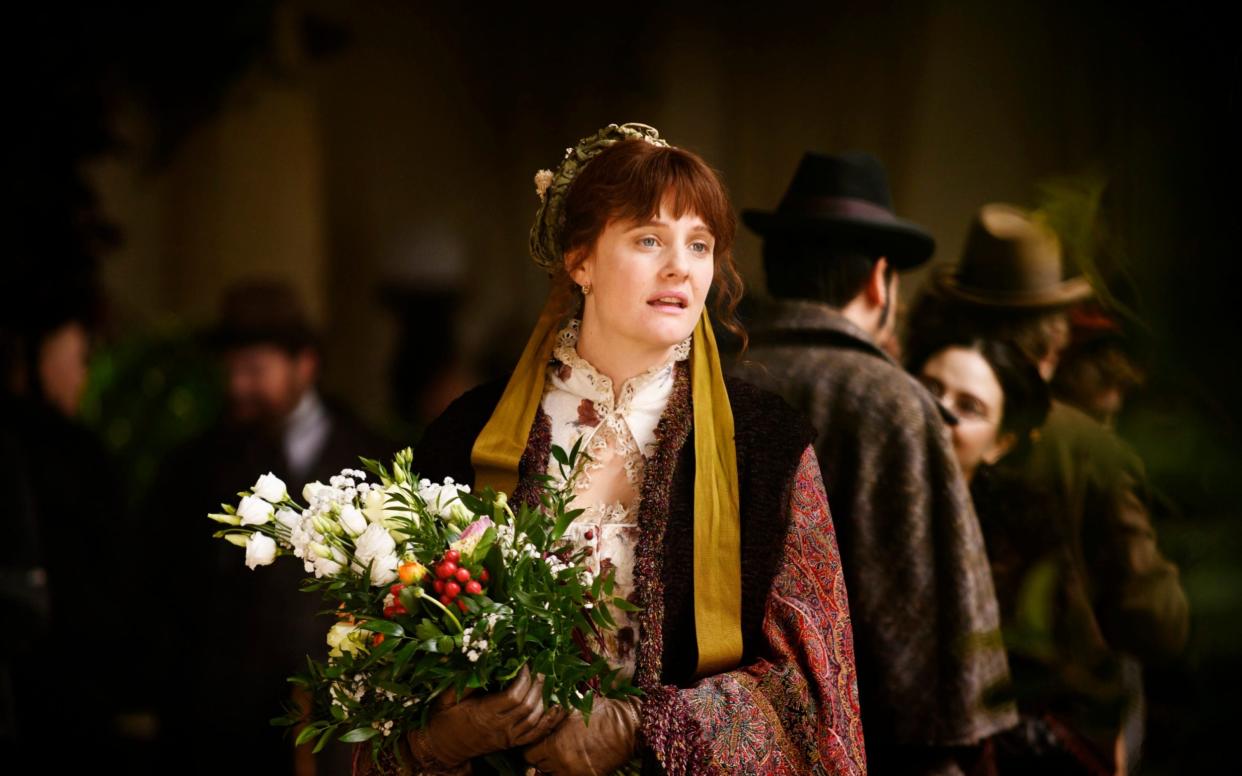Miss Marx, Venice Film Festival review: a lumberingly sombre biopic of Karl Marx's daughter Eleanor

Dir: Susanna Nicchiarelli; Starring: Romola Garai, Patrick Kennedy, Felicity Montagu, John Gordon Sinclair, Karina Fernandez, Oliver Chris, Philip Gröning. Cert tbc, 108 mins.
The blast of punk rock at the beginning of Miss Marx hits you with all the salty, revivifying force of the spray at the end of a pier. Could this biopic of Karl Marx’s youngest daughter, which premiered at the Venice Film Festival on Saturday, prove to be a briny wake-up call for the most formally and tonally timid genre around? Alas no. With the exception of a few fleeting sequences, Susanna Nichiarelli’s film is as lumberingly sombre as these things tend to get, and even an alert, inquisitive lead performance from Romola Garai can’t quite put a spring in its step.
Opening at Marx’s funeral at Highgate Cemetery in 1883, the film charts a course through the last 15 years of Eleanor’s life. These encompassed much tragedy and tumult, more than some of which was related to her ill-starred relationship with the writer Edward Aveling (Patrick Kennedy). Yet it was also a time in which she was able to effect change in the real world, leading rallies and demonstrations, and making an ongoing attempt to stretch her father’s philosophies over a framework of early feminist thought. Nichiarelli, who also wrote the screenplay, keeps the personal and professional sides of her subject’s life in a respectful equipoise, which is admirable in theory but desperately dry in practice. You end up feeling very grateful for the occasional attempts to dress things up, including a Wolf of Wall Street-style monologue to camera – complete with quotes from Das Kapital – delivered by Eleanor as she patrols various grim late-Victorian workplaces. There are also points at which a kind of socialist Spider-Sense seems to kick in, flashing us forward from Eleanor surveilling a stand-off between factory workers and policemen to a flurry of black and white newspaper photographs of protests to come in the century ahead. And Garai does at one point get to pogo around the screen to another punk track – recorded by an American group called Downtown Boys, whose first album was titled Full Communism, aptly enough.
But such flourishes don’t sit easily with the sober, methodical performances and visual style of the rest of Nichiarelli’s film, which delivers some of the typical period-drama surface pleasures – with this and I’m Thinking of Ending Things, 2020 is turning into a banner year for William Morris wallpaper on film – but none of the (even sublimated) emotional oomph that can make those surfaces glow and quiver on screen.
Take Aveling, who could have easily been a fun scoundrel – the role is 90 per cent opium and dressing gowns – but is played here by Kennedy as a fundamentally pathetic figure whose appeal to Eleanor is hard to decode. It might have been unfair to dock the film points for sidestepping routine period biopic choices with mixed results if so much of the script didn’t boil down to the kind of Wikipedia info drops that are among the dullest and most obvious of the genre’s crutches. “The British audience is not ready for this – just as they were not ready for your translation of Madam Bovary,” a theatregoer tells Eleanor after a self-directed staging of her translation of Ibsen’s A Doll’s House; there’s a lot of this stuff, and you get the idea. More often than not, it’s put into the mouths of an otherwise under-utilised supporting cast, among whom are Felicity Montagu as Marx’s long-serving housekeeper Helene Demuth; Karina Fernandez, a regular Mike Leigh collaborator, as the South African author and intellectual Olive Schreiner; and John Gordon Sinclair as a relentlessly avuncular Friedrich Engels, the philosopher with whom Marx authored the Communist Manifesto.
In its best moments, Nicchiarelli’s film feels like its own kind of manifesto: one in which period pieces can speak plainly and freshly to the present, and are as fascinated by complex women as they as great men. (The same goes for her previous film, Nico, 1988, which played Venice in 2017.) The principles are sound. But the execution sticks and wobbles.
Miss Marx premiered at the Venice Film Festival on Saturday. A UK release date has yet to be announced

